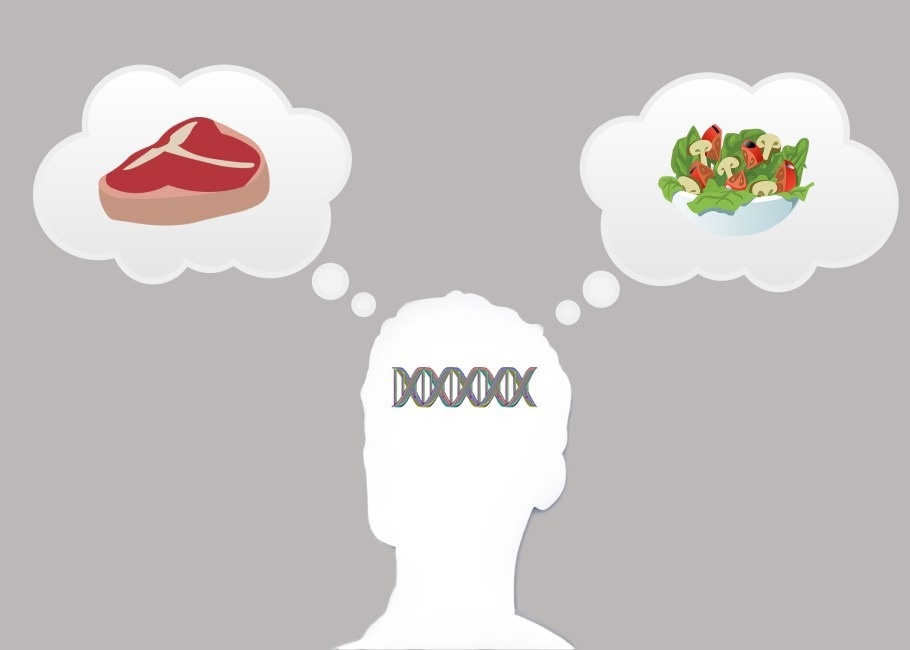Reviewed by Danielle Ellis, B.Sc.Oct 5 2023
Going meatless is undoubtedly fashionable, as seen by Impossible Burger and “Meatless Mondays.” However, a recent Northwestern Medicine research has discovered that a person’s genetic makeup is a factor in deciding whether they can maintain a strict vegetarian diet.

Image Credit: Northwestern University
The results pave the way for more research that could have significant effects on dietary advice and the creation of meat alternatives.
Are all humans capable of subsisting long term on a strict vegetarian diet? This is a question that has not been seriously studied.”
Dr Nabeel Yaseen, Study Corresponding Author and Professor Emeritus, Pathology, Feinberg School of Medicine, Northwestern University
About 48 to 64 percent of people who consider themselves “vegetarians” report consuming fish, poultry, and/or red meat, which, according to Yaseen, implies that biological or environmental factors may outweigh one’s desire to follow a vegetarian diet.
Dr Yaseen added, “It seems there are more people who would like to be vegetarian than actually are, and we think it is because there is something hard-wired here that people may be missing.”
Several Genes Involved in Lipid Metabolism, Brain Function
The researchers analyzed genetic data from 329,455 controls and 5,324 severe vegetarians (those who exclude fish, poultry, and red meat) in the UK Biobank to ascertain if heredity affects one’s capacity to follow a vegetarian diet. For the purpose of obtaining a homogenous sample and preventing ethnic confounding, the study’s participants were all white Caucasians.
The study found 31 additional genes that could be connected with vegetarianism, in addition to the three genes that are strongly associated with vegetarianism. The study discovered that some of these genes, including two of the top three (NPC1 and RMC1), are connected to lipid (fat) metabolism and/or brain function.
“One area in which plant products differ from meat is complex lipids. My speculation is there may be lipid component(s) present in meat that some people need. And maybe people whose genetics favor vegetarianism are able to synthesize these components endogenously. However, at this time, this is mere speculation and much more work needs to be done to understand the physiology of vegetarianism,” Dr Yaseen noted.
The research was released in the PLOS ONE journal on October 4th, 2023. It is the first comprehensively peer-reviewed and indexed study to examine the relationship between severe vegetarianism and genetics.
Why Do Most People Eat Meat?
Adopting a vegetarian diet has traditionally been driven by moral and religious principles, and recent studies have shown that it is also beneficial for health. A small fraction of individuals worldwide are vegetarians, despite vegetarianism's rising popularity. For instance, in the United States, between 3 and 4% of people identify as vegetarians. 2.3% of adults and 1.9% of children in the UK identify as vegetarians.
This begs the issue of why the majority of people still favor eating meat-based goods. According to Yaseen, the way a person’s body metabolizes food and drink influences preference more than just flavor. For instance, most individuals would not first find alcohol or coffee to be delightful, but with time, one develops a taste due to how these substances make one feel.
Dr Yaseen stated, “I think with meat, there is something similar. Perhaps you have a certain component—I am speculating a lipid component—that makes you need it and crave it.”
What does it mean for those who choose not to eat meat for ethical or religious reasons if genetics play a role in that decision?
Dr Yaseen concluded, “While religious and moral considerations certainly play a major role in the motivation to adopt a vegetarian diet, our data suggest that the ability to adhere to such a diet is constrained by genetics. We hope that future studies will lead to a better understanding of the physiologic differences between vegetarians and non-vegetarians, thus enabling us to provide personalized dietary recommendations and to produce better meat substitutes.”
Source:
Journal reference:
Yaseen, N. R., et al. (2023). Genetics of vegetarianism: A genome-wide association study. PLOS ONE. doi.org/10.1371/journal.pone.0291305